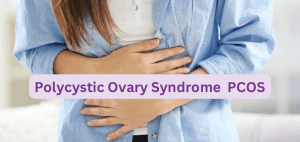Signs You Have Polycystic Ovary Syndrome PCOS

Polycystic Ovary Syndrome (PCOS) is a complex endocrine disorder that affects women of reproductive age. It is estimated that up to 20% of women worldwide may have PCOS, making it one of the most common hormonal disorders in women. Despite its prevalence, PCOS is often underdiagnosed and undertreated, which can lead to significant health problems.
Symptoms
The symptoms of PCOS vary widely and can include irregular menstrual cycles, excessive hair growth, acne, and weight gain. Women with PCOS may also experience other hormonal imbalances, including elevated levels of androgens, insulin resistance, and high levels of inflammation. PCOS can also cause infertility, as the ovaries may not ovulate regularly or may not release mature eggs.
Causes
The exact cause of PCOS is not fully understood, but it is believed to be related to a combination of genetic and environmental factors. There is evidence that PCOS runs in families and that certain environmental factors, such as exposure to endocrine-disrupting chemicals, may contribute to the development of the disorder. Women with PCOS tend to have higher levels of androgens, which are male hormones that are also present in females in smaller amounts. This excess androgen production can lead to the development of cysts on the ovaries, as well as other hormonal imbalances.
Diagnosis of PCOS typically involves a combination of medical history, physical exam, and blood tests to assess hormone levels. Imaging tests, such as ultrasound, may also be used to check for cysts on the ovaries. The diagnostic criteria for PCOS have evolved over time, and there is ongoing debate among healthcare providers about the most appropriate criteria for diagnosis.
Treatment
Treatment for PCOS depends on the individual and their specific symptoms. Lifestyle changes, such as regular exercise and a healthy diet, can help manage symptoms and reduce the risk of complications. Weight loss has been shown to be particularly effective in reducing insulin resistance and improving fertility in women with PCOS. Medications may also be prescribed to regulate menstrual cycles, reduce androgen levels, and manage insulin resistance. Hormonal contraceptives, such as the pill, may be prescribed to regulate menstrual cycles and manage symptoms, particularly in women who are not trying to conceive.
For women trying to conceive, fertility treatments such as ovulation induction and in vitro fertilization may be necessary. In some cases, surgery may be required to remove cysts from the ovaries or to correct other structural abnormalities that may be contributing to infertility. Women with PCOS who are not trying to conceive may choose to use hormonal contraceptives to regulate menstrual cycles and manage symptoms.
In addition to the physical symptoms of PCOS, women with the disorder may also experience emotional and psychological challenges. PCOS can have a significant impact on body image and self-esteem, particularly in women with excessive hair growth or acne. Women with PCOS may also be at increased risk of depression and anxiety.
In conclusion, PCOS is a complex hormonal disorder that can have significant impacts on a woman’s health and well-being. Early diagnosis and treatment are important in managing symptoms and reducing the risk of long-term complications. If you are experiencing symptoms of PCOS, talk to your healthcare provider to discuss potential diagnosis and treatment options. With the right care and management, women with PCOS can lead healthy and fulfilling lives.







